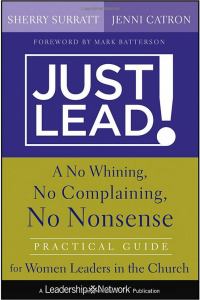Coming up this Thursday March 28 at 2:30(EST) sign-up and participate in the next NavXP with Jenni Catron. Out topic is Alignment: getting everyone to pull in the same direction.
Brian McGown is the Executive Pastor at Faithbridge church in Spring, TX. In out recent NavXP webinar hangout, he shared his story about how vision clarity radically changes his role, church staff alignment, and ministry impact.
It’s easy to listen to his story and still miss how clarity is a game-changer for pastors. Clarity isn’t everything, but it changes everything. Brian’s story echoes what I hear over and over from pastors who really invest in what it takes to get clear.
>>From the treadmill to the triathlon – Clarity Makes Focus Sustainable
As a pastor, do you every feel like you’re running and running endlessly pushing forward, but never really getting anywhere; or paddling as hard as you can, but the river bank isn’t moving. Brian shares how being clear about who they are as a church and what they’re supposed to be doing creates sustainable ministry.
“When we are clear about something – the Lord has given us the vision…it’s almost like just getting in the river and moving down the right way – being in the Mississippi and heading down toward Louisiana instead of trying to paddle upriver.” I wonder if Brian watches Duck Dynasty…
When you’re clear about exactly what you’re called to do as a church, it provides the leadership credibility to say “no” for the sake of a larger “yes”. All of the wasted effort of paddling upstream is transformed into forward momentum as God sweeps us along in His vision for us. “Clarity makes our job as leaders so much easier!” Don’t get me wrong, it’s still hard work, but it’s exponentially more fruitful when it’s focused.
>>Endless tasks to eternal transformation – Clarity makes work meaningful
As pastors, we often feel like ministry has been reduced to wrestling with an overfilled calendar, meetings, research, damage control, and email elimination – especially for Executive Pastors. In the tyranny of tasks we end up with no margin for more meaningful things. Our role gets reduced to time and task management. But clarity gives a framework and compass that points us relentlessly toward our mission. Brian tells the story of how being clear about their mission as a church leads them into ministry that is eternally transforming the lives of people in Houston and beyond. “Our church is playing a big role in Love146, which is fighting the exploitation and trafficking of children around the world…”
>>From beggar to abundantly blessed – Clarity makes enthusiasm transferable
At some point, every pastor feels like we’re begging – whether it’s getting people to volunteer, endlessly asking for resources to complete a project, or trying to convince people to join a small-group. Whatever it is, we seem to always be trying to pull something out of our people.
Many times enthusiasm only comes with clarity. There is a moment of contagious excitement when a follower gets it. When we connect who we are called to be and our God-breathed mission to an opportunity to serve, it captures a person’s hearts and makes them want to share it. But the ease of sharing it is directly proportional to clarity. Brian tells the story of partnering with a local school to provide food for kids who were faced with the choice of stealing it from school or going hungry. “We presented it to the church and literally just had an overabundance of giving to that. We had to adopt three other schools just to provide enough children for the amount of food and resources we could bring…”
Brian and the other leaders at Faithbridge make a compelling case for clarity, and the way it changes the nature of ministry and church life.
>>Do you want to get clear? Start a conversation with Auxano or just contact me. Auxano is a non-profit that serves churches by navigating leaders through growth challenges with vision clarity.
Coming up this Thursday March 28 at 2:30(EST) sign-up and participate in the next NavXP with Jenni Catron. Out topic is Alignment: getting everyone to pull in the same direction.







